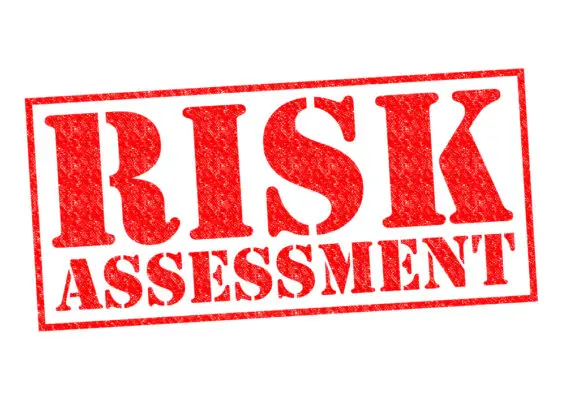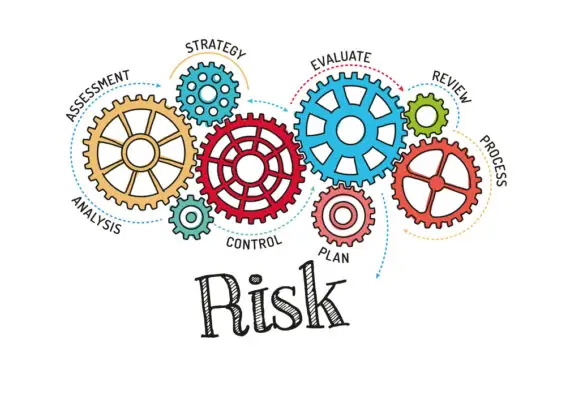An operational risk manager is responsible for assessing business operations, identifying issues, and creating reports on their findings to business process owners. They are tasked with reducing or offsetting risks by systematically identifying hazards and assessing and controlling unnecessary risk still high on residual. This allows decisions to be made that weigh the costs of potential losses against the benefits of taking risks.
Operational risk managers must deeply understand operational risk management frameworks and processes to assess and manage risks effectively. They must also have excellent communication skills to effectively report their findings to stakeholders. In addition, they must be able to think critically and strategically to make informed decisions about how best to mitigate risks.
Senior leadership sees their work’s risks differently from those they face. Traditionally enterprise risk management has an emphasis on finding the optimal equilibrium between risk and rewards to mitigate risk.
Sometimes organizations accept risk to grow their business faster or shift their attention to managing risk with a slower growth cycle. Operating risk management (ORM) views are risk-averse and emphasize protecting organisational structures from financial risk.
Are you curious about the growing career field of operational risk management? Are you ready to dive deep into understanding what it is, who’s involved, and how they help organizations remain secure?
Then this blog post is for you! As an introduction, let’s first look at what exactly an operational risk manager does—their daily tasks, the expertise required for success in the role, and the numerous safety precautions taken by these professionals.
We’ll also talk about how their work keeps key stakeholders safe from various types of risks within an organization. So buckle up and start your journey toward becoming an expert on this all-important job function today.

Operational Risk
Operational risk is the risk of losses caused by flawed or failed processes, policies, systems or events that disrupt business operations. This is identified through risk assessment in a process called control self-assessment where operational processes are analyzed.
In other words, it is the risk of loss resulting from inadequate or failed internal processes, people, systems, or external events. It is a broad concept that encompasses many different types of risks, including human error, system failure, fraud, and natural disasters. Operational risk can significantly impact an organization’s bottom line and reputation.
Organizations must take steps to identify and manage operational risks to protect their assets and operations. This includes developing policies and procedures to address potential risks, implementing controls to reduce the likelihood of losses occurring, and monitoring operations for any changes in risk levels
Organizations should ensure that their staff are properly trained in operational risk management to recognize potential threats and respond appropriately.
Overall, operational risk management is essential for any organization looking to protect its assets and operations from unexpected losses.
Operational Risk Management
Operational Risk Management (ORM) is a critical component of any business. It involves assessing, controlling, and mitigating the risks associated with day-to-day operations. ORM helps businesses identify potential risks before they become problems and provides strategies for dealing with them if they do occur.
ORM starts with identifying potential risks that could affect the operations of a business. This includes things like natural disasters, cyber security threats, employee errors, and more. Once identified, businesses can then create plans to mitigate those risks or prevent them from occurring in the first place.
Causes of Operational Risk
Operational risks usually arise in four ways: person, processes, system or external events. Typically companies try as best as possible to minimize risks in each category, even though the operational risk is likely always present.
Operational risk can arise from various sources, including human error, system failure, fraud, natural disasters, and external events.
Human error is one of the most common causes of operational risk. Poorly trained staff or inadequate procedures can lead to mistakes that result in financial losses or even legal action against the company. System failure is another source of operational risk.
Outdated technology or software can cause delays in processing orders or inaccurate data entry, which can lead to costly errors. Fraud is also a major source of operational risk as it can involve both internal and external actors attempting to steal money or sensitive information from the company.
Natural disasters such as floods, hurricanes, and earthquakes can also cause significant disruption to business operations resulting in financial losses. Finally, external events such as changes in government regulations or economic downturns can have a significant impact on an organization’s ability to operate effectively.
Organizations must take steps to mitigate their exposure to operational risk by implementing effective policies and procedures for managing risks associated with their daily operations. This includes training staff on proper procedures for handling customer transactions and data entry and investing in robust technology solutions that are regularly updated with the latest security features.
Organizations should have contingency plans in place for responding quickly and effectively to natural disasters or other unexpected events that could disrupt operations.
By taking proactive steps to identify potential sources of operational risk and implementing appropriate measures for mitigating them, organizations can reduce their exposure to costly losses due to failed processes or external events.
What are examples of operational risks?
Operational risks are risks that arise from the day-to-day operations of a business or organization. These risks can include anything from human error, system failures, fraud, theft, data compromise, third-party risk and more. Examples of operational risks include:
Human Error: This could be an employee making a mistake in their job duties or failing to follow company policies and procedures.
System Failures: This could be a computer system crashing or malfunctioning due to a technical issue.
Fraud: This could be someone stealing money or assets from the company.
Theft: This could be someone stealing physical items such as equipment or inventory.
Data Compromise: This could be someone hacking into the company’s computer systems and accessing sensitive information.
Third-Party Risk: This could be a vendor not delivering goods on time or providing services that don’t meet expectations.
Companies should have processes in place to identify potential risks and develop strategies for addressing them before they become an issue. By taking proactive measures, companies can reduce their exposure to operational risks and ensure their long-term success.
What Does an Operational Risk Manager Do?
An Operational Risk Manager is responsible for helping the organization identify and assess potential operational risks and develop solutions to mitigate those risks. They work closely with other departments within the organization to ensure that all operations are running smoothly and efficiently.
The role of a risk manager includes identifying potential problems or issues before they become major issues, monitoring current operations for any signs of risk or failure, and developing strategies to reduce risk or prevent future failures.
The scope of their responsibilities can vary from business to business but typically includes establishing risk management frameworks, policies and procedures; conducting risk assessments; developing contingency plans; monitoring compliance with regulations
investigating incidents; implementing changes to processes; providing training on operational risk management processes; and evaluating organizational performance. Additionally, they may be involved in crisis management if needed.
A successful operational risk manager will have excellent problem-solving skills and be able to think quickly on their feet to come up with solutions tailored to each situation.
Why is an Operational Risk Manager Needed?
Operations often involve complex tasks requiring multiple departments to work together to run smoothly. But there are also a lot of external factors that can affect the success of operations, such as market volatility, political instability, technological advances, and regulatory changes.
As a result, it’s essential that these areas are managed effectively so that potential risks can be identified early on and dealt with appropriately. This is where an Operational Risk Manager comes in – they provide valuable insight into managing these risks so that the organization can continue operating efficiently without interruption or failure.
Risk management is an essential part of any business and managing operational risk is a key component. By performing operational risk reviews, businesses can identify potential risks and develop a framework to mitigate them.
The operational risk framework should include strategies for identifying, assessing, monitoring, controlling and reporting on operational risks. Additionally, organizations should have policies in place to ensure that the framework is regularly reviewed and updated as needed. Through taking these steps, businesses can effectively manage their operational risk and ensure that their operations are running smoothly.
Operational Risk Manager Job Description
As an operational risk manager, in senior management, you are responsible for assessing business operations and identifying potential issues. You must create reports on your findings and provide recommendations for mitigating risks. Your job is to ensure that the organization is compliant with all applicable laws and regulations, as well as internal policies.
Your duties include developing operational risk policies and standards, performing risk identification and assessment in business units, and monitoring compliance with applicable laws and regulations.
You must also have a thorough understanding of the organization’s operations, processes, systems, and external events that can affect its performance. Additionally, you will be expected to stay up-to-date on industry trends and best practices related to operational risk management.
To be successful in this role, you should have excellent analytical skills and be able to think strategically. You should also possess strong organizational skills to manage multiple tasks simultaneously. Moreover, you must have excellent communication skills to effectively collaborate with stakeholders across the organization.
Setting up a well-defined operational risk management function and using key risk indicators (KRIs) are essential tools to help organizations manage risks. Kris allows organizations to effectively monitor risk levels over time, as well as identify any emerging threats in an effective and timely manner to manage operational risk.
Additionally, implementing operational risk assessments can ensure that the organization is efficiently managing its risks. By proactively assessing potential risks, organizations can better understand the various areas of operations where they should be focusing their attention.
A good operational risk management process can also help organizations prioritize resources to keep their operations running smoothly while managing risks at the same time.

Licensing or Certifications for operational Risk Manager
Operational Risk Managers are required to obtain a license or certification in order to work in the field, especially in the financial industry. Depending on the country, state, or region, the requirements for licensing and certifications may vary.
In the United States, Texas requires all individuals and entities in control of an agency’s operations to have a risk manager license. The PRMIA ORM Certificate is designed to provide a deep understanding of operational risk management frameworks and measurement methodologies.
The American Bankers Association also offers a Certificate in Operational Risk Management which consists of 11 courses that take approximately 10 hours to complete.
The Institute of Operational Risk offers a Certificate in Operational Risk Management that requires 130-150 hours of study and includes a study workbook and exam fee. The RIMS-Certified Risk Management Professional is an accredited competency-based risk management credential that validates performance ability, technical knowledge, and experience.
Overall, there are many different licenses and certifications available for operational risk managers depending on their location and desired focus area. It is important for potential risk managers to research the requirements for their specific area before beginning the program.
Conclusion
Operational Risk Managers play a vital role in helping organizations identify potential risks associated with operations before they become major issues. They monitor current operations for any signs of risk or failure while developing strategies to reduce risk or prevent future failures and emerging risks.
An effective operational risk manager will have strong problem-solving skills and be able to think quickly on their feet to come up with solutions tailored towards each individual situation. If your business needs help managing its operations more efficiently then hiring an experienced Operational Risk Manager could help you achieve your goals!

Chris Ekai is a Risk Management expert with over 10 years of experience in the field. He has a Master’s(MSc) degree in Risk Management from University of Portsmouth and is a CPA and Finance professional. He currently works as a Content Manager at Risk Publishing, writing about Enterprise Risk Management, Business Continuity Management and Project Management.


